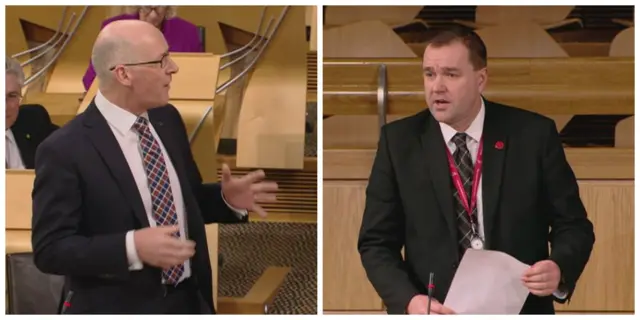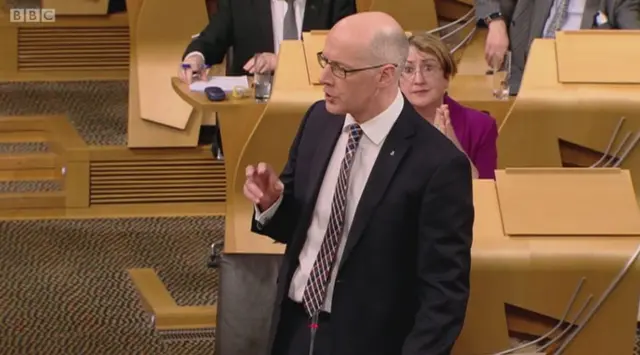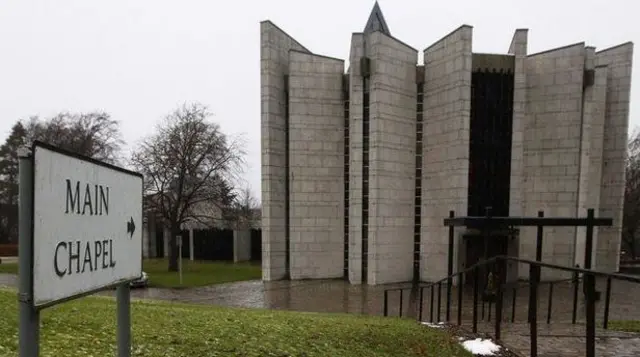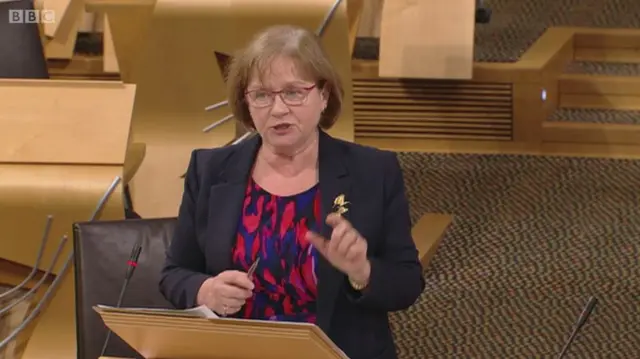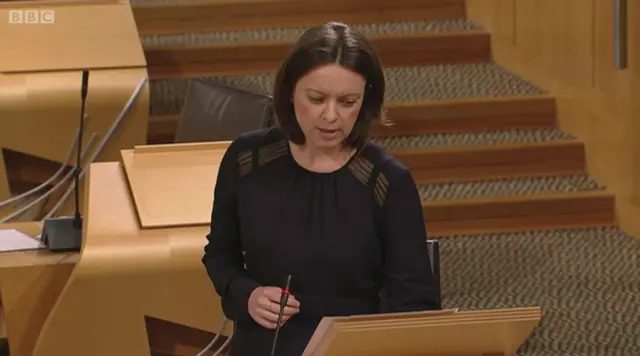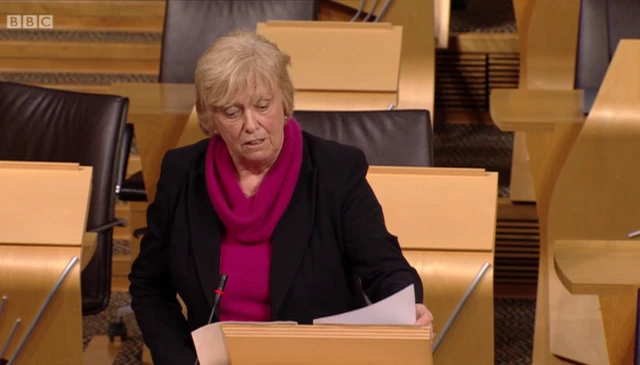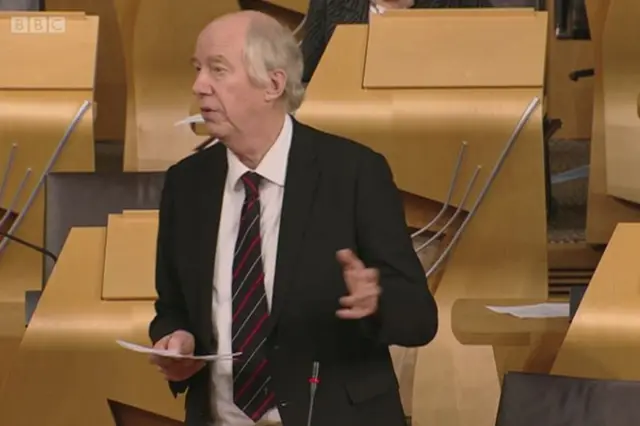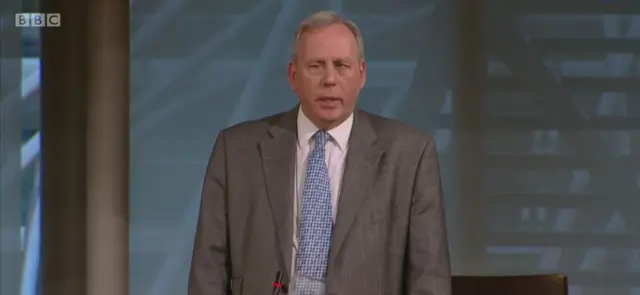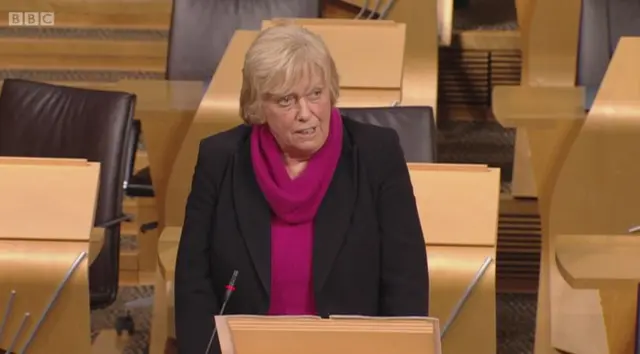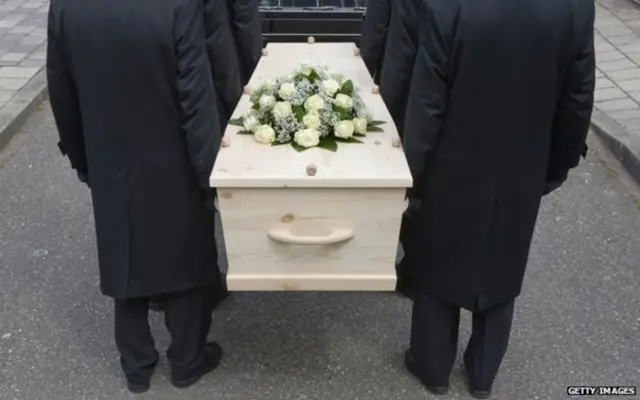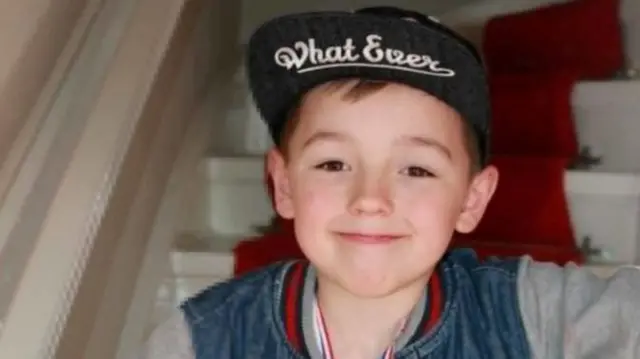Minister says 'Labour is targeting working people'published at 17:32 GMT 11 February 2016
Mr Swinney wants to know how much Labour's rebate will cost, he disagrees with their estimate of £1m.
He says this is not a credible plan for government, from a party not fit to be in opposition.
The finance secretary says: "Labour is targetting working people busting a gut to make ends meet, this government will not punish those individuals."

